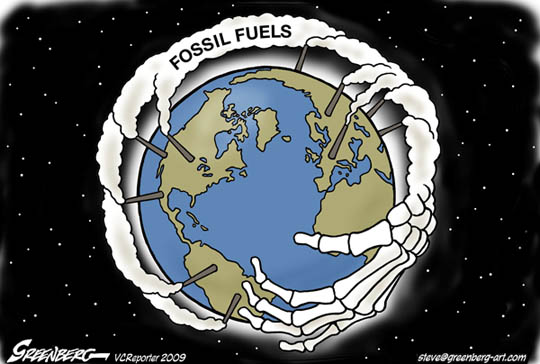 Bright and windy this afternoon on California’s north coast, sunshine filtered by some high, thin clouds — nice and comfy with a wind break, otherwise, a sharp, chilled breeze will briskly-batter the brains.
Bright and windy this afternoon on California’s north coast, sunshine filtered by some high, thin clouds — nice and comfy with a wind break, otherwise, a sharp, chilled breeze will briskly-batter the brains.
Based upon the supposition, of course, you have brains, and if you don’t… who’s got sense enough to tell?
Even with just half a full-set of brains, one ought fathom not to chow-down on clearly-marked poison.
(Illustration found here).
Problem being this poison wasn’t clearly understood enough early on to be correctly labeled — the power of civilization and the rise of the machines — and continued until some isolated environmental shit started hitting the proverbial fan, then more shit, then worse shit, and then enough shit got spattered about, the poison got noticed. (In a way-nutshell).
Oil fuels life in the modern era, at least the last 200 years or so, and is an embedded foundation of society. Until just recently, the sucking-up of this shit ran full-tilt-boogie.
And we’re back — this afternoon from the Wall Street Journal: ‘The U.S. crude-oil benchmark settled up $1.47, or 2.5 percent, at $60.40 a barrel on the New York Mercantile Exchange, the highest settlement since Dec. 10. Brent, the global benchmark, gained $1.07, or 1.6 percent, to $67.52 a barrel on ICE Futures Europe, the highest since Dec. 5.’
And this, too, from Bloomberg: ‘Inventories at Cushing, Oklahoma, the delivery point for U.S. oil futures, fell for the first time since November, a sign the worst glut in 85 years may be easing. A record drop in rigs drilling for oil helped spur a 25 percent gain in prices last month, the biggest advance since May 2009.’
Business as usual creates an amazingly brainless reflection of reality. Supposedly, filed under the by-now-should-be-obvious index — the problem with burning fossil fuels:
This increase of atmospheric CO2 and other gasses has the effect of changing the global climate back towards the point when they were originally sequestered.
This climate was characterised by higher average global temperatures and higher sea levels.
Furthermore, the rapidity of the change (about 200 years) is having additional impacts.
This period of time is extremely short in context of the global climate and is not much more than a single generation for some long lived species leaving them very little time to adapt.
Just an example of what mankind should be doing — from today’s Irish Examiner: ‘Research by that department suggests a third of oil reserves, half of gas reserves, and over 80 percent of current coal reserves globally should remain in the ground and not be used before 2050 if global warming is to stay below the 2°C target agreed by policymakers.’
And this burning fossil fuels is leading to what?
As been the case recently with ‘new‘ science research/studies released seemingly just about every day, warning of the peril, this particular ‘new‘ one concerns the Arctic ice sheet — this afternoon from the Guardian:
There was less ice in the Arctic this winter than in any other winter during the satellite era, National Oceanic and Atmospheric Administration scientists said on Tuesday.
The announcement was consistent with previous predictions that the Arctic would have entirely ice-free summers by 2040, they said in a briefing to the media on the state of climate trends in the north pole.
The consequences of such a small quantity of Arctic ice are major and far-reaching.
After undergoing a period of colder temperatures and slower ice retreat between 2007 and 2012, the Arctic is returning to a warm period with the overall trend over the decades continuing to show temperatures getting hotter and ice melting faster.
…
Ed Farley, a scientist with NOAA’s Alaska fisheries science center, said that studies over the last 15 years showed that ice melting faster year-on-year led to a drastic loss in the fat contained in zooplankton – a fish food crucial for the entire area’s ecosystem.
“We all know that we are what we eat,” Farley said, echoing lines more commonly heard on reality television show The Biggest Loser.
But his words were not aimed at educating teenagers on the virtues of broccoli and blueberries, or at educating adults in getting into shape beyond the treadmill.
…
Zooplankton feeds the area’s fish, which in turn feed the area’s seals, which in turn feed the area’s polar bears.
Eating high-fat foods is crucial forthose species to allow them to fatten up and survive harsh winter months.
Grease those irresponsible brains…